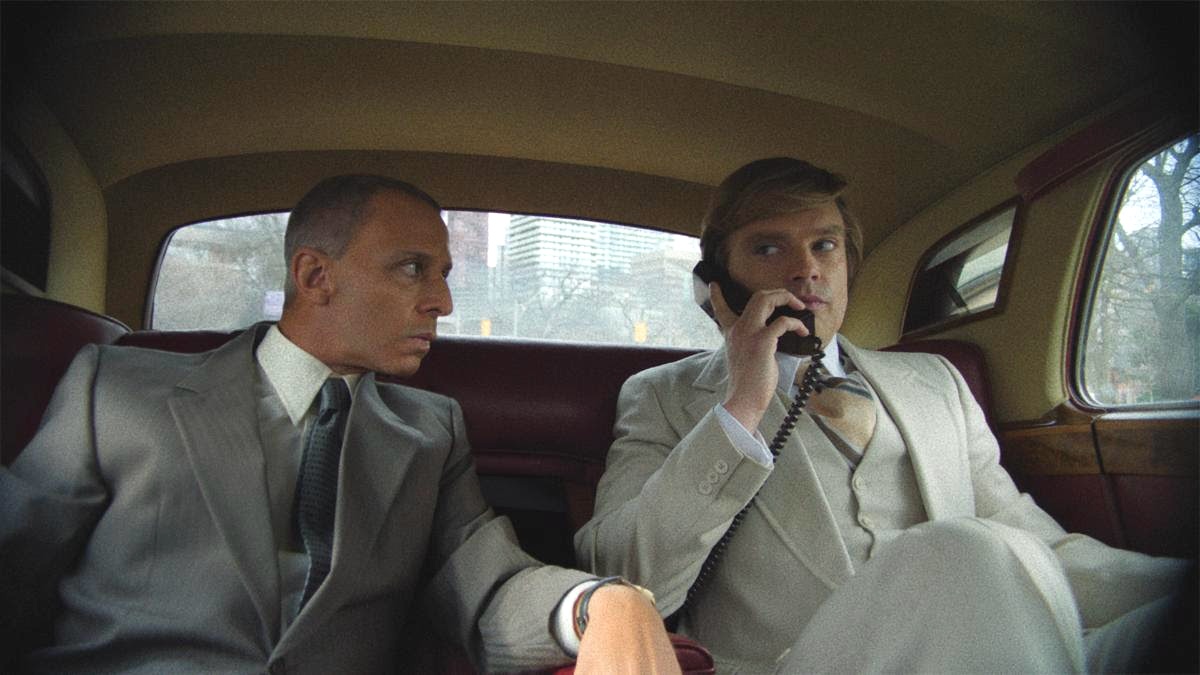‘The Apprentice’ throws Trump a much-needed PR lifeline, leaving his controversial baggage at the door

Ali Abbasi’s The Apprentice charts former president Donald Trump’s rise to power through a singular and highly problematic mentorship by racist/nationalist lawyer and kingmaker Roy Cohn. While tonally and visually appealing (and sometimes appalling and violent), the film lacks a necessary fullness in its portrayal. It presents an increasingly bombastic yet simplistic view of Trump’s transformation and undercuts what makes him who he is.
In an unusual way, it goes about the business of pushing to the side the deep-rooted essence of his beliefs and subsequent actions to build out the origin story of a uniquely American supervillain. This version of Trump feels correct in a specific track, as he is fundamentally aggrieved in only the way a white petulant man-child with a silver spoon in his mouth could be. He wants and gets the relationships he wants. He wants and gets the building. He wants and gets the girl. He’s the ultimate pick-me packaged in an unearned and fake self-sufficiency. But while the film offers compelling performances by Stan and Strong (as Cohn) and moments of genuine unease and vileness, its premise is fundamentally flawed. Trump’s short journey to becoming a divisive political figure wasn’t a dramatic transformation but a gradual amplification of pre-existing traits and beliefs.
Sebastian Stan’s outstanding portrayal of Trump somewhat gradually morphs from an uncertain young man into the figure we know today. However, this progression glosses over Trump’s problematic and paradoxical foundation—given he is the son of a first-generation immigrant (his mother). This film paints Trump’s progression as if there was a long distance to travel to his present iteration. As the son of Fred Trump, Donald was steeped in his father’s racist real estate practices from the start. The film’s suggestion that Cohn’s influence charged Trump to become the man he is today doesn’t necessarily ignore this crucial context. Still, later, humanizing his father—and Cohn, during his battle with AIDS, which his ego will not acknowledge—relaxes his foundations, for which there is an entire article in The Atlantic just on The Donald’s racism through 2019.
Jeremy Strong’s Roy Cohn is a Mephistophelean figure, ostensibly corrupting Trump. But this feels like a cop-out, as the narrative absolves Trump of agency in his own moral decay. It presents a false dichotomy between the “genuine aesthete” Cohn and the gauche, gilded Trump when, in reality, both men were cut from similarly tainted cloth.
Abbasi’s attempts at drawing direct lines between past and present often feel heavy-handed. Scenes like Roger Stone discussing presidential ambitions with Trump come across as clumsy foreshadowing rather than organic character development. The mention of his running for high office if he were to go functionally broke was also a great tell/tale that could have been told with more nuance. Also, there isn’t a true centering point upon which Trump turns from a wealthy evildoer to a monstrous figure. He turns colder after a particular death, but not enough occurs contextually before that point to suggest the turn.
Paradoxically, The Apprentice may inadvertently humanize Trump in a way that serves his interests—despite his outrage at the film. Presenting his rancid evolution as a series of external influences (his father, Cohn) and pivotal moments render him a product of circumstance rather than the architect of his own moral failings. This is likely where Trump’s narcissistic outrage lies, as he’s been committed to the utter ridiculousness of his being known as a self-made man.
The Apprentice is, without question, a tremendously well-made film and works well as a character study that should garner all the award consideration possible for its acting and Abbasi’s direction. However, the story fails to fully untangle the knotted complexities of Trump’s foundational character. Instead, it offers a somewhat reductive narrative that may do more to mythologize than illuminate its subject (and others in Fred Trump and Cohn) roundly unworthy of sympathy.
This is an opinion piece. The views expressed in this article are those of just the author.
